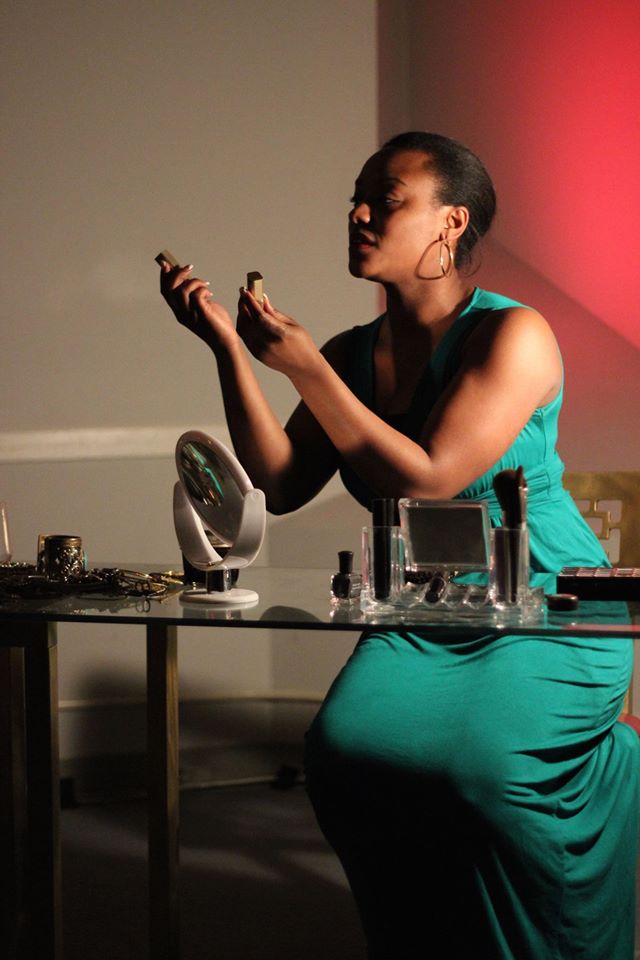
Photo credit: Fresh Ink Theatre, Jade Guerra tearing it up as Clytemnestra.
Presented by Fresh Ink Theatre
Written by A. Nora Long
Directed by Caitlin Lowans
Dramaturgy by Ramona Ostrowski
April 10 – 18, 2015
The Hale Chapel at First Church
Boston, MA
Fresh Ink on Facebook
Review by Kitty Drexel
Trigger Warning: Strobe effect
(Boston, MA) Homer’s Iliad tells us that Agamemnon fought bravely at Troy for ten years to reunite Helen and Menelaus. Greek myth tells us that when Agamemnon returned from the Trojan War, his wife Clytemnestra murdered him in the bath. Depending on the myth the particulars of who, why and how differ. What is evident is Clytemnestra’s retention of power and eventual murder at the hands of her children after the fact. A. Nora Long’s The Clytemnestriad follows the events leading up to and after Agamemnon’s death from the perspective of his wife, Clytemnestra. Playwright Long painstakingly borrows from Aeschylus’ Oresteia, Euripides’ Iphengenia plays, and other Greek myths (including homeric poems) to create her play. The events of Clytemnestra’s (Jade Guerra) life leading up to and after Agamemnon’s (Robert Cope) murder are told out of order and without precedent (aside from a brief summation of history in the programme). All characters are introduced to the audience without context. We are forced to suss out for ourselves via process of elimination who is who.
Long hasn’t forgotten to tell us who the characters are. In fact, she goes out of her way to prevent characters from naming each other aloud. It is my belief that the audience is kept ignorant of character names and histories largely to prevent unobjective bias. We are forced to form an opinion of the actions on stage based only on what we see. While this is frequently confusing and sometimes frustrating, it makes for an interesting experience. This is not a production for a lazy spectator.
Despite the confusion (or maybe because of), Long’s writing is solid and weaves an excellent story. Her male and female characters are rich with cares and needs. They develop familial and platonic relationships with pasts and futures. Long’s writing gives Clytemnestriad’s cast much fodder to shape and toy with. In particular, Jade Guerra has a sturdy presence not just because she’s our heroine but because her performance carries equal parts of strength and vulnerability. Her commanding moments as queen are balanced with precious fragility when she plays mother and wife.
The actors supporting Guerra deserve a better term than “ensemble.” Robert Cope, Shanae Birch (whose half-crazed, nuttier than a sack of pistachios Electra was a visceral treat), Melody Martin and Alex Marz share the stage with Guerra and give performances just as notable.
There are other interesting details of the production worthy of inspection. For example, Long modernizes significant themes such as immortality, beauty standards, and the divine through mention of celebrity gossip and use of rag mags. The atypical set design within Hale Chapel proves that a traditional set is not necessary to produce effective theatre. If one can see past the confusing issues of a jumping timeline and unidentified characters, The Clytemnestriad is an interesting examination of one of Greek myth’s most famous women.
